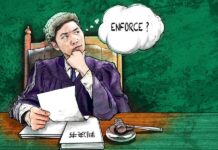As a result of globalization and the growth in cross-border trade and investment activities, courts in countries like Australia are increasingly hearing commercial disputes in which both parties are from countries outside Australia.
An example is a dispute between two Chinese parties in relation to an investment in a company over a mining operation in Australia. In such circumstances, judges sometimes need to assess evidence about foreign law. Foreign law may be relevant to questions such as whether one of the parties had capacity to enter into a contract, whether the investment complied with Chinese foreign exchange regulations, and whether an Australian judgment would be recognized and enforced in China. Foreign law will also be relevant where a dispute arises in relation to a contract that is governed by foreign law.
In common law jurisdictions, a question under foreign law is treated as a matter of fact that needs to be proved by expert evidence. If there is a dispute as to the interpretation and application of foreign law, the parties will engage independent expert witnesses to provide expert reports. In situations where the experts disagree as to the position under the foreign law, the experts may be questioned and subject to cross-examination in court. The judge will then assess the expert evidence and endeavour to determine the true position under the foreign law.
This is different from the position in civil law jurisdictions, where a question under foreign law is generally treated as a matter of law and the court can make its own investigations to determine the position. In civil law jurisdictions, foreign law experts are sometimes engaged by the court itself, and operate under its direction (for a discussion about these issues, see China Business Law Journal volume 7, issue 4: Determining foreign law; and China Business Law Journal volume 10, issue 4: Expert evidence).
Whether a judge needs to assess expert evidence on foreign law will depend on the specific matter, and whether foreign law is relevant. It is, of course, much more common for judges to assess factual evidence from the parties themselves, and from other witnesses. For this purpose, judges often hear oral testimony from the witnesses in court. When judges hear and assess oral testimony, they often consider the demeanour of the witnesses to determine their credibility; namely, whether the witnesses are telling the truth and providing evidence that is reliable. The English word “demeanour” refers to the way in which a person behaves, speaks and communicates with others.
The process of assessing demeanour can be difficult for a judge when the witness is from another country and belongs to a culture that is different from that of the judge. It can be even more difficult if the witness cannot speak English and needs to communicate through an interpreter. Difficulties can also arise in the case of self-represented parties; namely, parties who represent themselves and do not engage a lawyer to represent them in court (for a discussion about the challenges in this regard, see China Business Law Journal volume 7, issue 9: Self-represented parties).
You must be a
subscribersubscribersubscribersubscriber
to read this content, please
subscribesubscribesubscribesubscribe
today.
For group subscribers, please click here to access.
Interested in group subscription? Please contact us.
你需要登录去解锁本文内容。欢迎注册账号。如果想阅读月刊所有文章,欢迎成为我们的订阅会员成为我们的订阅会员。

Andrew Godwin
A former partner of Linklaters Shanghai, Andrew Godwin teaches law at Melbourne Law School in Australia, where he is an associate director of its Asian Law Centre. Andrew’s new book is a compilation of China Business Law Journal’s popular Lexicon series, entitled China Lexicon: Defining and translating legal terms. The book is published by Vantage Asia and available at www.vantageasia





















